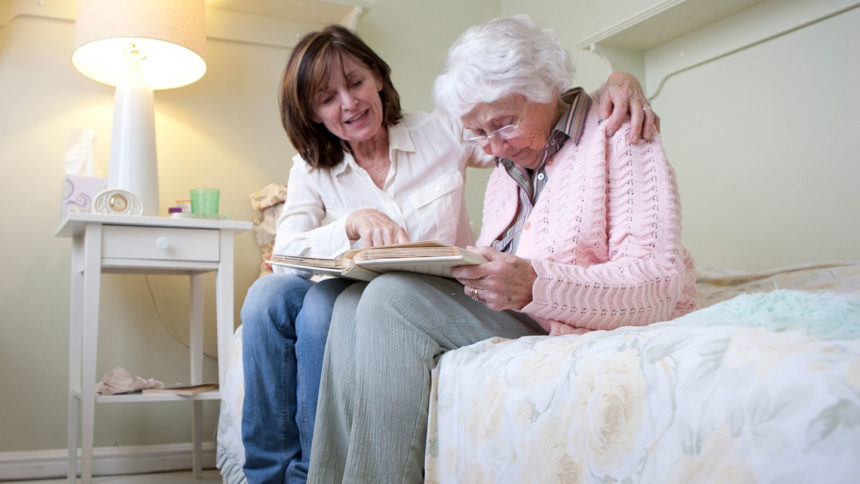
The federal government is hoping to do more for people with dementia on Medicare — and their unpaid caregivers.
On Monday, the Centers for Medicare & Medicaid Services announced the Guiding an Improved Dementia Experience (GUIDE) model. The goal is to improve the lives of people living with dementia and lower the strain on their caregivers. The program also eyes better care coordination so people can stay in their homes for as long as possible. It includes caregiver education and support, as well as respite services for when caregivers need a break.
GUIDE is a voluntary program that’s part of the National Plan to Address Alzheimer’s Disease. It will run for eight years initially as part of the Center for Medicare and Medicaid Innovation, which is part of CMS and tests new payment models.
Aging services providers applauded the new model.
“Nonprofit, mission-driven aging service providers know that caring for an older adult with dementia is complex — and that family and friends are a critical part of the care team,” Katie Smith Sloan, president and CEO of LeadingAge, said in a statement. “Many of our provider members already dedicate time and resources to educating unpaid caregivers, and need alternative payment models like the one announced today to support those efforts and help keep people in the setting of their choice. We appreciate the Biden administration’s attention on how to ensure that unpaid caregivers as well as those they care for are part of how older Americans receive the quality care they need wherever they call home.”
The Department of Health and Human Services announced the program during a meeting of the Advisory Council on Alzheimer’s Research, Care, and Services.
“Our new GUIDE Model has the potential to improve the quality of life for people with dementia and alleviate the significant strain on our families,” HHS Secretary Xavier Becerra said in a statement.
The GUIDE Model will let CMS test an alternative payment process for caregivers, and include a 24/7 support line. People with dementia and those who care for them will be able to interact with a navigator that can point them in the direction of services and support — everything from meal delivery programs to transportation services. It will also give caregivers educational opportunities to learn more about how to best care with a loved one who has dementia.
Caregivers will be able to bill for respite services up to a certain amount.
To secure GUIDE services, a person must:
- Not live in a nursing home
- Have dementia confirmed by a clinician practicing in a GUIDE DCP
- Be enrolled in Medicare Parts A and B
- Have Medicare as the primary payer
- Not be on Medicare hospice benefits
People who don’t meet guidelines can contact other Medicare providers/suppliers called partner organizations to get assistance. This fall, CMS will unveil how people can apply for GUIDE.



